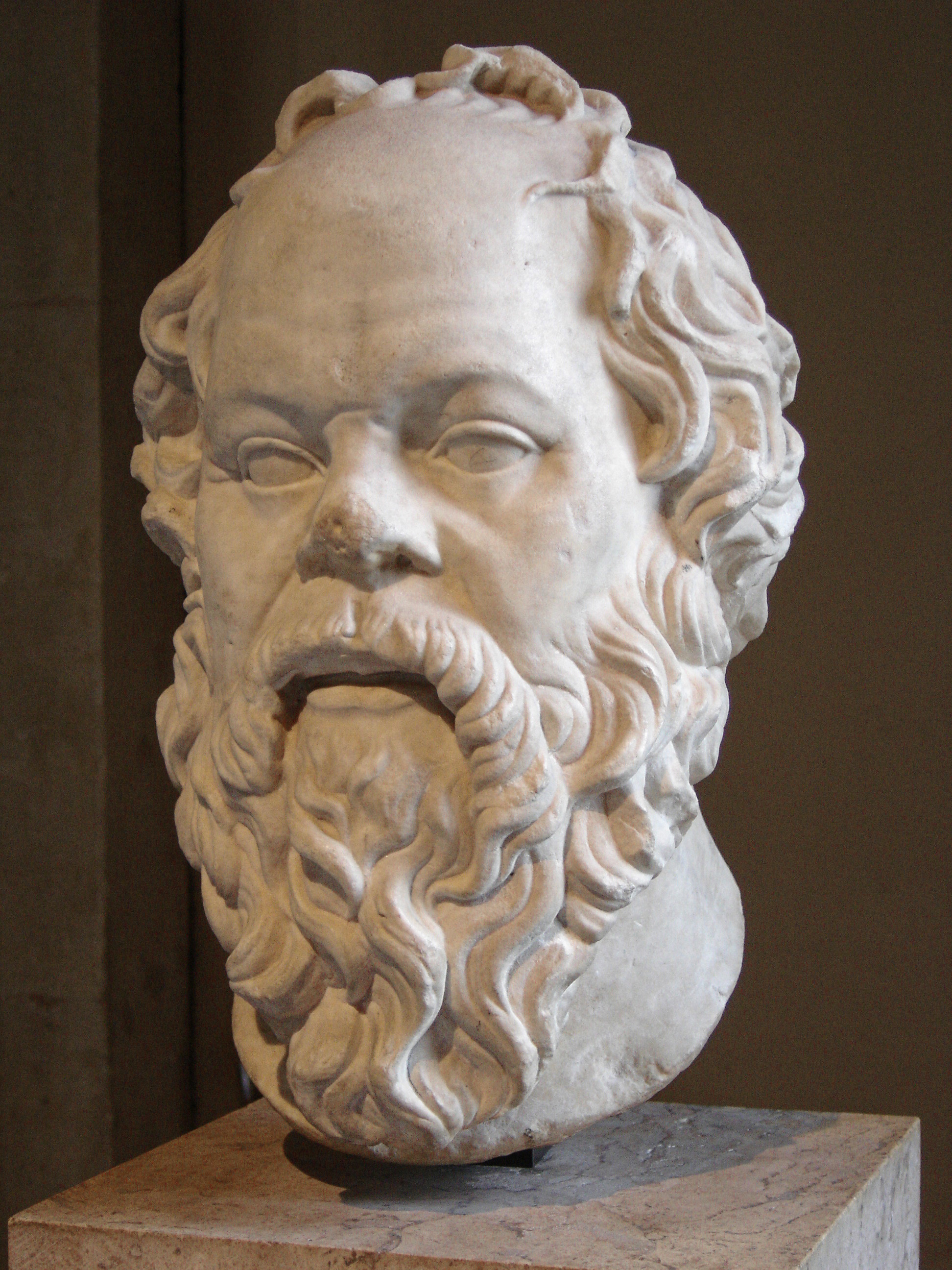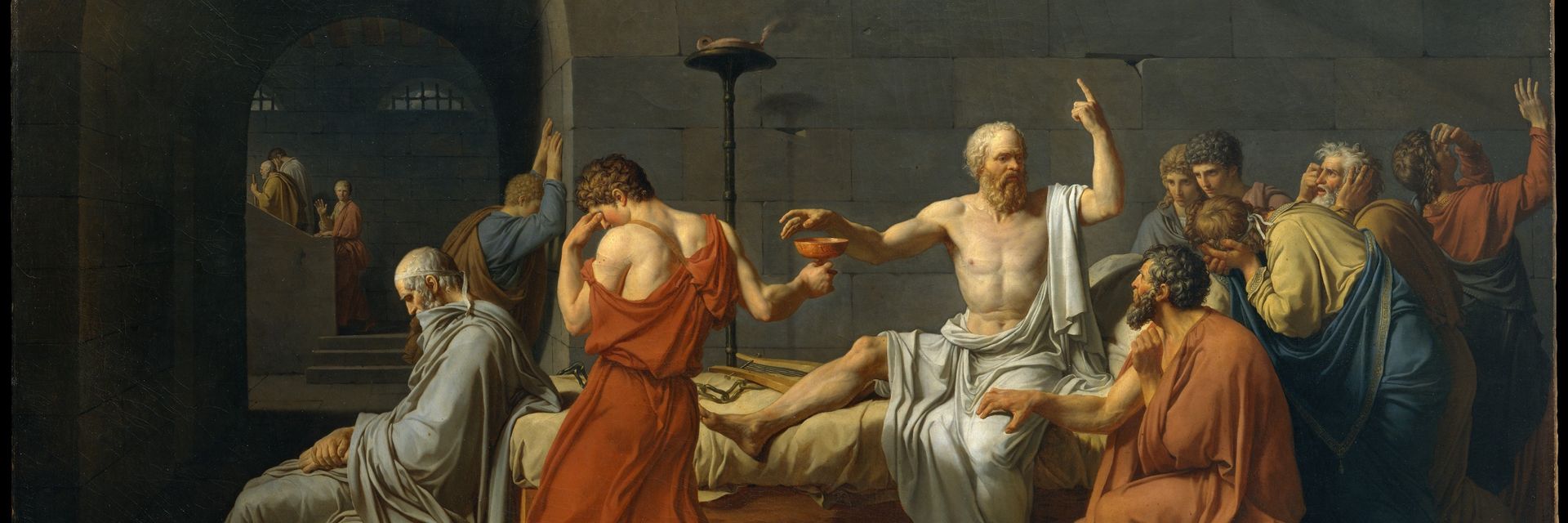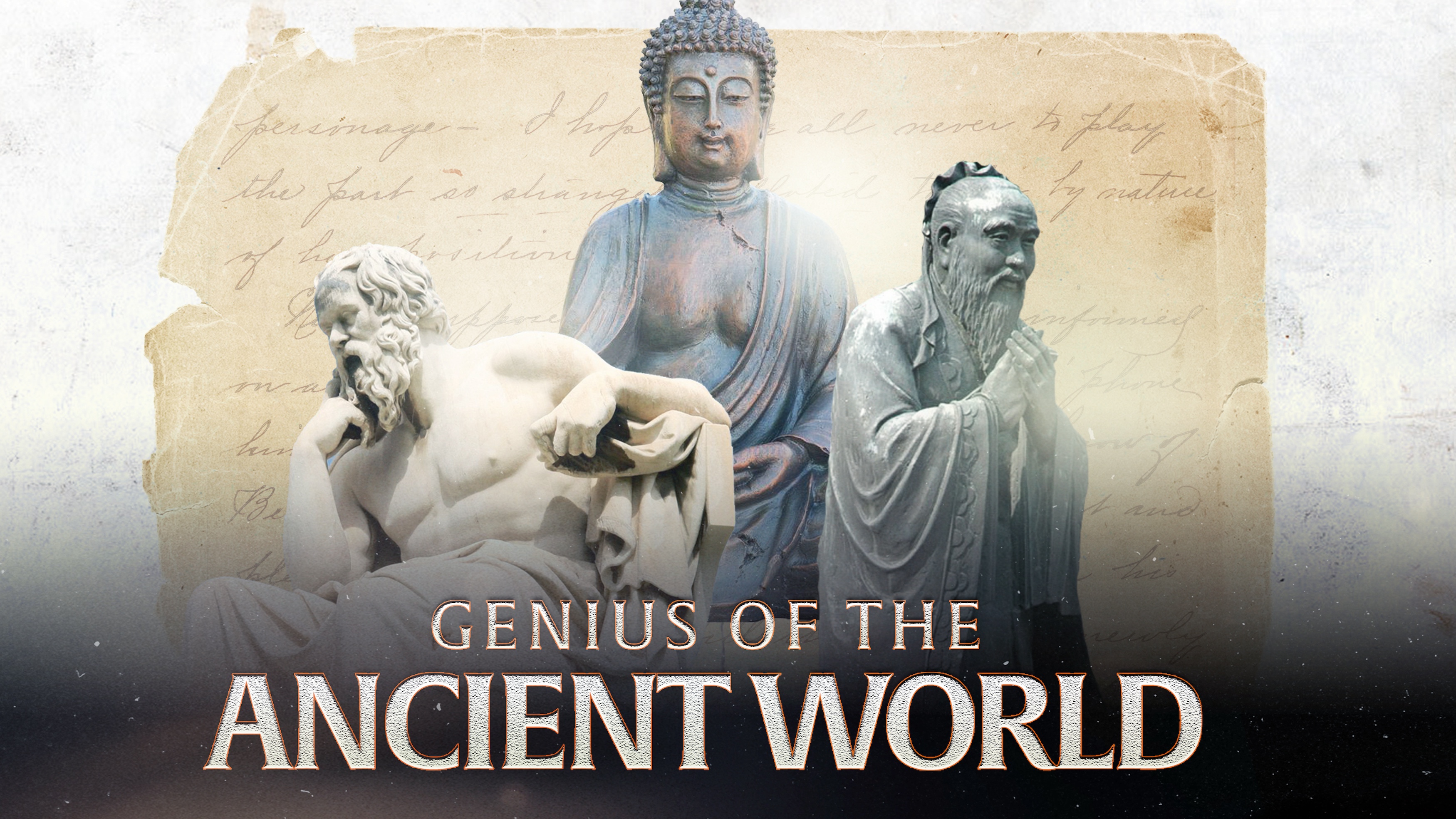Hemlock wasn’t the only thing on the ancient philosopher’s mind when death was at his door.
◊
No one wants to be executed, let alone unjustly. According to Plato, however, this was exactly what happened to Socrates, the famous ancient Greek philosopher who declared, “The unexamined life is not worth living.”
For a deeper dive into Socrates’s life and thought, watch MagellanTV’s “Genius of the Ancient World”
Having gained an unfortunate reputation as someone who did not personify certain Athenian ideals, Socrates also actively flouted a number of social norms. As Plato presents him in the tetralogy that chronicles his last days, however, Socrates never abandoned what mattered most, namely the search for truth about how to live the good life.
Socrates Meets His Fate
In Euthyphro, Apology, Crito, and Phaedo, Plato traces the events leading up to, and including, Socrates’s death. Socrates meets the young, self-styled theologian, Euythyphro, outside the courthouse where the trial in front of a jury of 501 Athenian citizens was set to take place. Socrates then defends himself (or not, depending on whom you ask) against charges of atheism and corrupting the youth.
 Bust of Socrates. Collection of the Louvre Museum. (Photo credit: Eric Gaba, Wikimedia Commons user Sting)
Bust of Socrates. Collection of the Louvre Museum. (Photo credit: Eric Gaba, Wikimedia Commons user Sting)
After his conviction and sentencing, Crito visits Socrates in jail, awaiting execution. Crito has arranged an escape to safety, but Socrates refuses and his death is thereby assured.
Socrates’s last day alive is recounted by a young man – Phaedo – who was present on the day. We learn that Socrates spent his final hours in philosophical conversation about the nature of the soul.
What Happens after Death?
According to Socrates, philosophical activity is “preparation for death.” Why? Because pursuit of the truth, as opposed to pursuing things like material wealth and social status, readies us for another realm of existence, where eternal truths reside. At death, the soul is freed from its bodily prison. If this is true, much of Socrates’s life has prepared him well for his imminent death.
Socrates and his friends present and examine four arguments in support of the view that the soul is immortal, after which Socrates declares he must take a bath, so that his body will be less difficult to clean. Crito asks for any last-minute instructions, including burial plans, but Socrates only bids his friends to take care of themselves, tells Crito to “be of good cheer,” and bury the body as he sees fit.
After bathing, Socrates meets with his family before returning to his friends. At sunset, the guard approaches with the cup of hemlock, which Socrates empties in a single draught. Now Phaedo and his compatriots can no longer contain their despair. Socrates, however, maintains calm.
After walking to speed circulation, Socrates lays down and covers his face. The guard begins to press on his foot, then his leg, asking if there is any feeling. There isn’t. Then Socrates pulls the cover off his face. “Crito,” he says. “I owe a cock to Asclepius. Will you remember to pay the debt?” Shortly after, Socrates is dead.
Tellingly, Asclepius is the god of healing. The offering of a rooster was often made after recovering from illness. Socrates believed that, in death, he would be healed of the disease that is life.
Ω
Title Image: The Death of Socrates by Jacques-Louis David, 1787. Collection of The Metropolitan Museum of Art. (Source: Wikimedia Commons)


